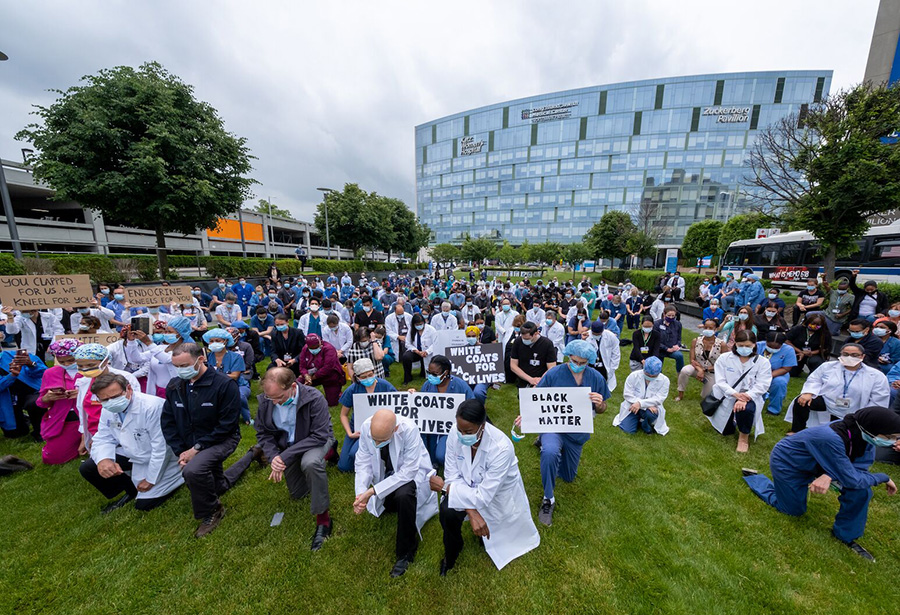In the days and weeks after George Floyd was murdered, civil rights activists and supporters protested the injustice, inequities and systemic racism that Black people and other communities of color face in everyday life.
Health care was no different. Across hospitals and health care organizations in the U.S., statements were made, knees were taken in solidarity, moments of silence were practiced, and some vague and specific initiatives were announced promising to address racism as a critical public health issue. For health care leaders who have been addressing health equity challenges their entire careers, like Maulik Joshi, DrPH, CEO of Meritus Health, it hasn’t been nearly enough.
“A year later, I think you still see a lot of statements and not as much action,” says Joshi. “People have the energy to do something but instead of taking the time to write out statements, they should be taking action.”
Joshi, who wrote an op-ed on the subject, says that while health care has increased its activity around these issues over the past year—and even in the years before Floyd was killed—the industry still struggles with earning results. He uses the example of COVID.
“We look at disparities in COVID around ethnicities with hospitalizations and mortality, and we talk about how terrible it is. Then literally three months later, we’re having the same problem with disparities around the vaccine. If there was ever a time where we’d try and do something to ensure this wouldn’t happen, it would be during COVID…and yet we still have these problems,” Joshi says. “We need to be focused on meaningful results.”
Read more: Arkansas BCBS exec: Vaccine disparities come from a mistrust of the health care system
Zing Health CEO and co-founder Eric Whitaker, MD, is another health care leader that has spent a lot of time in his career trying to improve health inequities. Not only has he started Zing, which offers Medicare Advantage plans for vulnerable communities in both urban and rural areas, but he ran the first Black men’s clinic in the country on the South Side of Chicago in the late 1990s. He has mixed feelings about the progress that’s been made post George Floyd.
“There have been lots of performative announcements and a year later, not a whole lot has changed. But we are still in the early days and I’m an optimist. My hope is that more Americans have had their eyes open, but the jury is still out on whether systemic change is going to follow,” Whitaker says.
Some leaders in health care do believe there is increased excitement and willingness to tackle the challenges of health equity. Leon Clark, Sutter Health’s Chief Research and Health Equity Officer, says he sees a sense of urgency and recognition that these problems need to be addressed with alacrity. Kristen Azar, RN, Sutter’s Institute for Advancing Health Equity Scientific Medical Director, adds that the recent movement around health equity feels different since the George Floyd murder.
“There are increasing calls for accountability for health systems to really be part of the solution. Questions on how we can measure health equity, measure progress and hold systems accountable will be part of the conversation moving forward. There’s also been a real push to make equity a part of quality and integrate the concepts together, so we think about equity whenever we think about quality and safety,” says Azar.
From the front lines of addressing inequity: ‘Health equity work is quality and safety work’
Clark notes that even with the increased excitement, the work to address these problems is complex and many organizations may not know where to start. Along with Azar’s concept of integrating equity and quality, he suggests organizations measure where they are internally with respect to disparities, continue to gauge any progress they’ve made, and make a long-term commitment to these initiatives.










